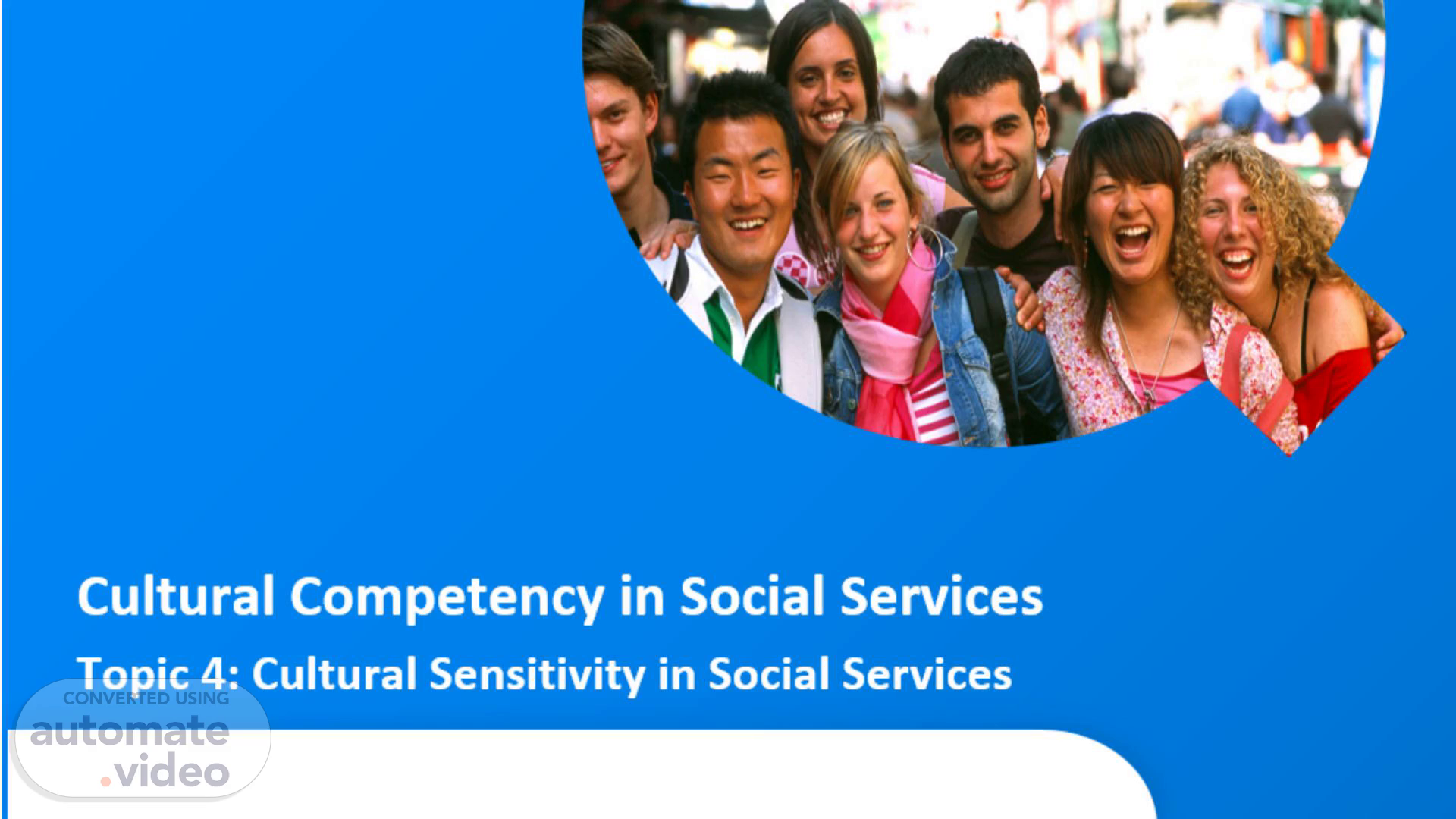Scene 1 (0s)
[Audio] Hello, Welcome to the introduction of fourth topic of the Course Cultural Competency in Social Services. Name of the Topic we are going to learn about is Culturally Sensitivity in Social Service ..
Scene 2 (12s)
[Audio] Learning Outcomes for: Cultural Sensitivity in Social Services. After this session you will be able to learn:. Learning Outcome 1: Understand the concept of cultural sensitivity in social service delivery. Cultural sensitivity involves awareness, respect, and acceptance of cultural differences without judgment, and signifies a readiness to adapt one's approach based on each client's unique cultural identity. In social services, this means recognizing personal biases, understanding nonverbal cues, and ensuring practice aligns with ethical standards requiring humility and cultural awareness. Ultimately, culturally sensitive delivery fosters trust, strengthens rapport, and improves overall service effectiveness. Learning Outcome 2: Learn how to recognize and address cultural differences that may affect the provision of services. Recognizing cultural differences means actively examining one's assumptions and identifying unique client worldviews, including communication styles, decision-making norms, and familial expectations. Addressing these differences requires self-reflection, seeking feedback, using inclusive language, and adapting interactions—such as relying on direct guidance for clients from hierarchical cultures—to avoid misunderstanding and create equitable service environments. Learning Outcome 3: Develop strategies for respecting cultural diversity while providing services. strategies for respecting cultural diversity include ongoing self-reflection to uncover biases, collaborating with clients as cultural experts in their own lives, and integrating community resources and culturally appropriate referral systems. Practitioners can use tools like the culturagram to map family and cultural histories, engage interpreters or cultural brokers, and embrace cultural humility—acknowledging gaps in their own knowledge and prioritizing client-led dialogue . These strategies foster trust, empower clients, and enhance service outcomes in diverse settings..
Scene 3 (2m 27s)
[Audio] So what are the Applications of topic in the industry? Cultural sensitivity is essential across modern industries—especially in healthcare, human resources, customer service, and mental health. Organizations that invest in sensitivity training see improved employee morale, increased retention, and better cross-cultural team cohesion. What is the Utilization of this topic in this course and other courses of this program? Social work and human services programs center cultural sensitivity in their curriculum. Students learn to recognize their own biases, understand diverse cultural norms, and adapt their communication and intervention styles accordingly. Training focuses on intercultural communication, ethical standards, and culturally safe practices—equipping graduates to better connect with clients and foster trust . What is the Importance of this topic for Career opportunities? Cultural sensitivity is a high-demand skill in careers like social work, counselling, healthcare, international business, and community outreach. Professionals who are culturally sensitive are more effective in diverse client interactions, minimize misunderstandings, and enhance service outcomes. Employers value this skill as it strengthens client relationships, supports inclusive workplaces, and builds leadership capacity in multicultural environments. Let us Start with learning about. Learning Outcome 1:Understand the concept of cultural sensitivity in social service delivery. Thank You for listening..
